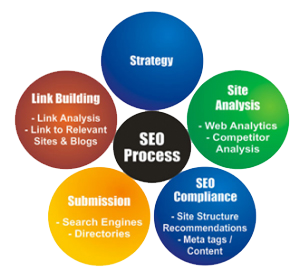Does Keywords Still Important for our SEO Service?

With so much media coverage focused on Facebook IPO & Apple's iPhone 5, you might have missed important Tech announcements like Google's "next frontier in search," Knowledge Graph, a growing collection of 500 million people, places and things.
Today, Knowledge Graph is available on desktop search as well as mobile devices for the English version of Google Search. Our team at skyren.org has been testing the search results from Knowledge Graph and it is clear that while content quality is still the top priority for optimization, on-page markup and links from authority sites will play a key role enabling Google to better rank and add your content to "related search queries," where your site has a second opportunity to be found by those searching.
Let's start by looking at the evolution of Google's algorithm in the past year to increase the number of signals the engine can understand -- the same evolution that is lowering the influence keywords used to have for optimization.
On June 2, 2011, Google, Yahoo and Bing announced Schema.org, a plan to support a common set of "tags" to help webmasters add properties to their content. This allows search engines the ability to recognize that content about "Miami" is about a city, but it could also be a university, a local newspaper, The Miami Herald or an NBA team, the Miami Heat.
The Schema web site was created to distribute the guidelines for the different item such as a "person" or a "place" and how they are associated with a set of like "address" and "nationality." Here is a list of all of the Schema item types.
Last November, the Russian search engine Yandex announced its support to the Schema.org initiative and offered to translate the website to local languages. In May, the Schema team announced that they would recognize "external enumerations" mechanisms from authority sites like Wikipedia and the United Nations. With the external data from trusted authorities, a webmaster that needs to add the "nationality" property to an item for a U.S. citizen, can add to their code.
By doing this, Schema does not have to maintain a list of values that are currently available as useful structured data from authority sites, like Wikipedia's list of countries.
Having external authorities supply existing controlled vocabularies, standards and datasets, is an efficient way to continue to improve the Schema.org markup. As the search engines increase and improve the signals they are looking for, we have the opportunity to help them find signals that we can control, as well as engage in outreach programs that will facilitate recommendations from influencers and search friendly user-generated content.
The Next Frontier in Search
Now that we understand how the search engines can leverage item types and properties, we can see that having a keyword database and using those keywords for headlines, title tags and meta descriptions is not enough to reach the next frontier in search.
Using data from authority sites, Google's Knowledge Graph helps users searching for "Miami" learn that the city has an "area" of 55 square miles, the "weather" today is 86 degrees and has a "population" of 399,457, as of 2010.
But searching for "Miami Mayor" does not provide a knowledge panel result with City of Miami Mayor Tomas Regalado or Miami-Dade County Mayor Carlos Gimenez. The official webpage for Mayor Gimenez has title tags and meta tags as well as his name several times. The page also has 58 links to different content. There is a second page with Mayor Gimenez's photo and a biography, but again, not optimized with the latest Schema markup, making it difficult for Google to validate if one of the pages is the authority source for this search query.
A search for "Miami President" provides a knowledge panel with information on University of Miami President Donna Shalala including her photo, birthday, education, siblings, even that she received the Presidential Medal of Freedom Award. In this search query, Google had to figure out if the search intent was for the president of the University of Miami in Florida or Miami University in Ohio. Signals like your location, social connections and search history can help the engines provide personalized results.
Keep in mind that results for the same query might be different when you are searching from a computer vs. searching from a mobile device or from a smart appliance -- like your refrigerator -- where you could search for recipes and recommendations from friends via the LCD screen on the refrigerator door.
Our tests with Google's knowledge panels made us forget that we were searching with a "browser." We did not need keywords as the knowledge panel did a good job providing the answers and relationships between the "things" we were looking for. Most panels had related resources and the discovery was done by jumping from link to link to specific assets and not "home" pages.
But with billions of associations, users will find mistakes. Webmasters have the opportunity to improve their signals and correct some of the associations that the Knowledge Graph is currently making. Some of the mistakes we found include a knowledge panel with a map of the city of Miami, Florida, with a related search for Miami University in Oxford, Ohio instead of the University of Miami in Coral Gables, Fl.
Following the "points of interests" associated with the city of Miami, we found a local attraction, the Miami Seaquarium and from there, the Miami Children's Museum. From the Children's Museum, parents might be surprised with the association to the Erotic Art Museum in Miami Beach.
At the bottom of the knowledge panel, there is a link to "report a problem," where you can click and report that one of the associations is "wrong." The Erotic Museum might be removed from the knowledge panel if many people report the information as a "problem."
Knowledge Graph and Google+ Local
Google.com was leveraging local information from Google Places, but last week we saw the migration from "places" to Google+ Local results. Searching Google.com for "crab restaurants, Miami" we find organic results on the left hand side of the search results page and a knowledge panel for Miami's legendary Joe's Stone Crab on the right hand side of the page.
The knowledge panel for the restaurant includes a map, photos, hours, links to review sites like Urbanspoon and Tripavisor as well as a Zagat rating of 27 for Joe's food, 20 for decor and 23 for service. This is a clever implementation of Zagat reviews, the company that Google acquired last September.
According to Marissa Mayer, Google's Vice President for Local, Maps & Location Services, 80 million Google Place pages worldwide have been automatically converted into Google+ Local pages.
Clicking the third-party review links on the Knowledge panel, the user lands on the specific Urbanspoon or Tripadvisor page for Joe's Stone Crab. But if you click the photos or the link to the 600+ Google reviews, from the knowledge panel the user will find the Google+ Local page for Joe's and personalized results including "activity from your Google+ circles" as the top results on Google+ Local page. Additional information on the Google+ Local page includes a request for the user to add their review and links to similar results.
Business owners with a Google Places page, or those that created Google+ Business Page, can increase the signals that Google can find. Encouraging customer to visit the Google+ Local page and leave a comment is a simple way to let Google know you have a popular location.
But before you tell your webmaster to add Schema tags to your entire site, and claim your Google+ Local page, you should work on a site audit to align your current content to your business goals. Our previous column covered how to leverage Your Social Shelfspace Opportunity. All of those recommendations still apply for the Knowledge Graph, especially the risk of making changes to what it is working already. But once you find duplicate content and assets (photos/videos/press releases) that are not aligned to your business goals, as you optimized them, make sure you add the corresponding Schema type and properties to each asset.
From there, keep track of how each asset is ranking and the sections of the site where users are engaging with your content. Your site architecture should create different entry points to help the search engine understand that you have different assets for your different products and services, not one long home page, or duplicate pages competing with each other as the example of Mayor Gimenez we mentioned above.
Google and the other search engines will continue to evolve. There is no quick solution to improve your rank and the associations of your site with the search queries of your customers and prospects. But taking the time to align content to business goals, create quality content for those goals and use social channels to share the content, will increase the opportunity to rank and limit similar sites from ranking on the shelf space you want to dominate.
- Tags: Keywords, SEO Service






